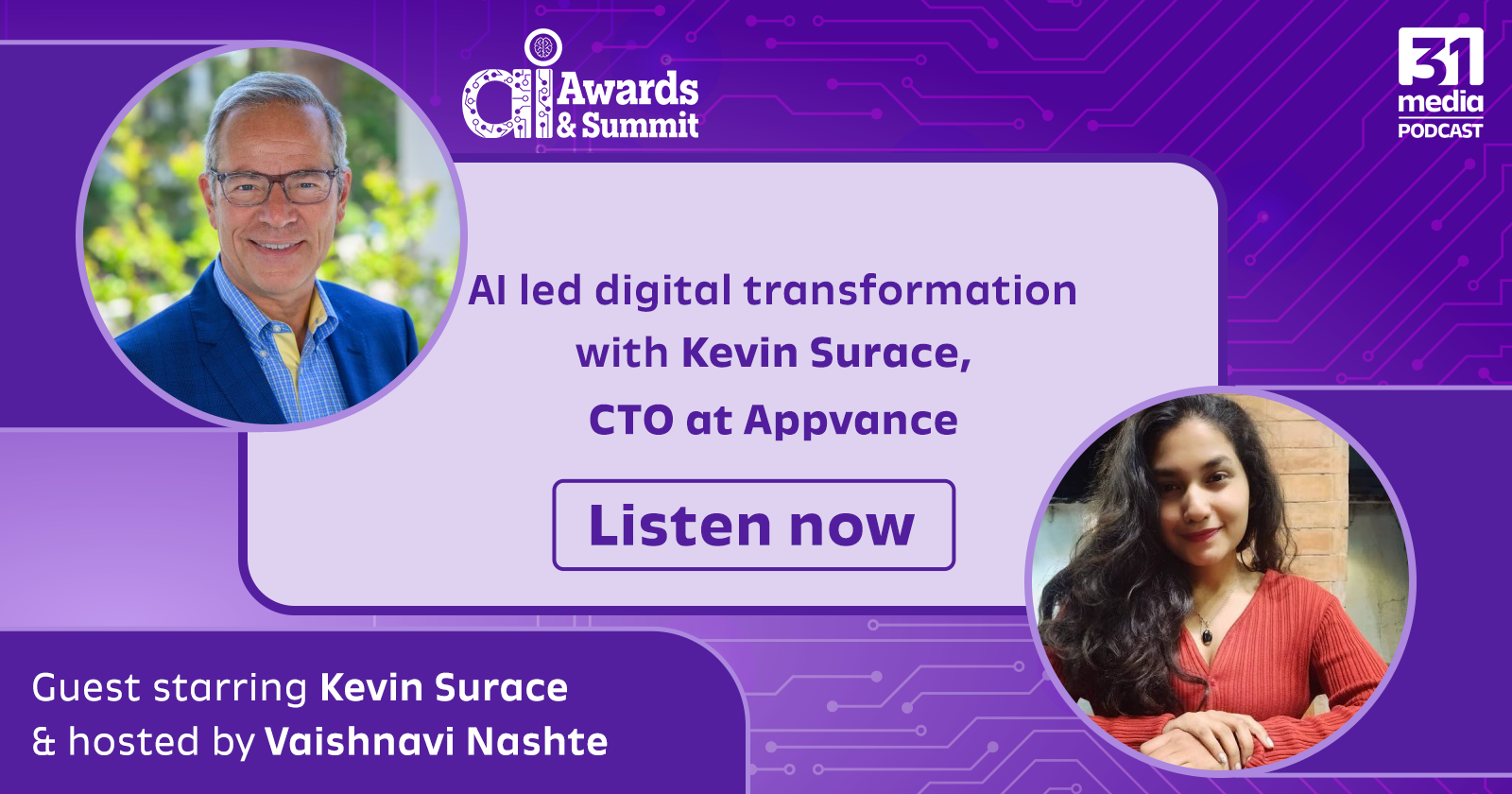This article is published in collaboration with the AI Awards & Summit. Enter the awards by March 16, 2025 – click here to submit your entry.
In this piece, Silicon Valley innovator Kevin Surace, known as the “Father of the Virtual Assistant,” explores the transformative power of AI and shares essential insights on its impact on businesses.
In a world where AI is reshaping industries and redefining roles, my journey with AI has been guided by a commitment to solving real-world problems. From creating the first human-like virtual assistant, Portico, to developing Appvance’s AI-first platform for software quality, I’ve always believed in using AI to drive efficiency and innovation. Here, I’ll share some reflections on AI’s transformative impact, the challenges organisations face, and the future of technology in an increasingly AI-driven world.
AI’s Impact on Business Processes and Decision-Making
The advent of deep learning in 2012 marked a turning point. AI’s ability to perform complex computations enabled us to solve challenges we once thought impossible. Generative AI, the most publicised form of AI today, opened new possibilities, allowing anyone to interact with AI in natural language, making it accessible beyond traditional tech circles.
In business, AI has revolutionised content creation and customer service. We can generate blog posts or complex imagery with a single prompt, driving the cost of content creation towards zero. This transformation extends to software development, where AI co-pilots can enhance productivity, making coding faster and more accurate. As I often say, AI is no longer a novelty; it’s a utility that boosts efficiency, speeds up processes, and redefines roles.
Challenges in Implementing AI Technologies
Despite AI’s potential, organisations face hurdles in adopting it. Privacy is paramount. When training models, companies must ensure proprietary data remains secure. Training is another challenge; without skilled AI trainers, many organisations struggle to make the most of AI tools. Cultural resistance also plays a role. Some employees may feel threatened by AI, viewing it as a replacement rather than a tool to enhance productivity.
Overcoming these challenges requires a holistic approach. First, companies must secure and privatise their models to protect sensitive information. Training employees on AI usage is equally important to build comfort and proficiency with the technology. Lastly, leaders should emphasise AI as a means to enhance roles rather than replace them. A well-trained workforce empowered by AI is a recipe for sustained growth.
Key Considerations for Long-Term Digital Transformation
For organisations undergoing digital transformation, productivity gains should be the primary metric. Digital transformation isn’t just about adopting the latest tech—it’s about driving efficiency and cost-effectiveness. At Appvance, we harnessed AI to streamline software testing, eliminating repetitive tasks and allowing developers to focus on innovation. Our AIQ platform can generate and execute thousands of test cases automatically, providing full application coverage that was previously unachievable.
This transformation requires organisations to set clear goals and identify areas where AI can deliver measurable results. Whether through improving customer service, enhancing employee satisfaction, or reducing operational costs, businesses should focus on AI as a tool for productivity and value creation.
Ethical Considerations in AI Integration
AI brings immense power, but it also raises ethical concerns. Privacy and security are crucial, particularly with technologies that handle sensitive data. Deepfakes and phishing scams are growing issues, with AI-generated messages nearly indistinguishable from human communication. To combat these threats, companies need robust cybersecurity measures. I’m working with Token Ring, a biometric ring that provides next-generation multi-factor authentication to secure applications against these risks.
Bias in AI is another ethical issue. Models trained on historical data may reinforce stereotypes, creating unfair outcomes. For example, if an AI model consistently depicts CEOs as older white males, it limits representation for other demographics. To counteract this, companies need to audit their AI models for bias and ensure diverse training data to foster inclusivity.

The Next Decade of AI: Exciting Developments and Industry Shifts
Looking ahead, two trends stand out: the rise of AI agents and advances in humanoid robotics. AI agents, or autonomous digital assistants, will soon be capable of performing complex tasks on our behalf. Imagine telling an AI to schedule a meeting or negotiate a contract; these agents will revolutionise productivity by handling repetitive, administrative tasks.
In robotics, reinforcement learning has enabled robots to perform intricate tasks without explicit programming. For instance, a robot can learn to make coffee by experimenting and “rewarding” successful attempts. This self-teaching capability opens up new possibilities for robots in everyday settings, from household chores to industrial applications.
These developments are exciting because they bridge the digital and physical worlds. AI agents can handle digital tasks, while robots can assist in physical environments. Together, they will redefine what’s possible in industries from healthcare to manufacturing.
Advice for Aspiring Innovators
As someone who’s filed over 94 patents, I often reflect on my journey. My advice for young entrepreneurs is simple: focus on solving real problems. Innovation for its own sake is less impactful than finding solutions that meet a need or improve lives. Be resilient, learn from failures, and don’t be afraid to venture into diverse fields. Curiosity has driven my career, whether in AI, construction materials, or energy-efficient technologies.
In today’s world, the pace of technological advancement is unprecedented. For those entering the field, remember that innovation is not just about having the best idea but about making it practical and valuable. Stay adaptable, focus on continuous learning, and surround yourself with people who challenge you.
Conclusion
AI is transforming every facet of business and life, from automating routine tasks to enabling unprecedented productivity gains. As AI continues to evolve, ethical considerations, privacy concerns, and workforce integration will remain crucial. For businesses and entrepreneurs, the key to leveraging AI lies in focusing on real-world applications, enhancing human capabilities, and maintaining a commitment to responsible innovation.
By embracing AI thoughtfully, we can unlock new possibilities and build a future where technology serves humanity’s best interests.
Get in touch
For event sponsorship enquiries, please get in touch with calum.budge@31media.co.uk
For media enquiries, please get in touch with vaishnavi.nashte@31media.co.uk


